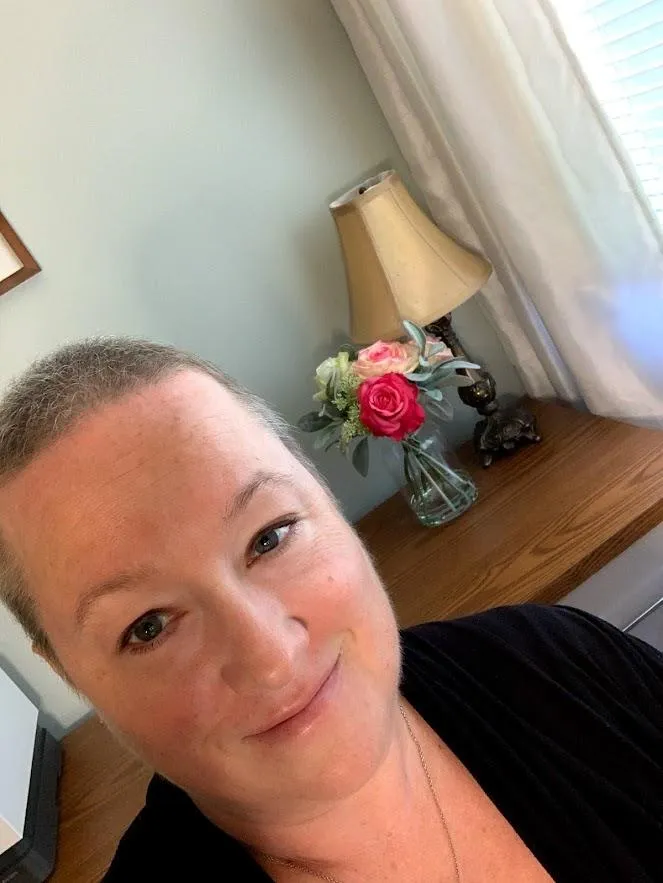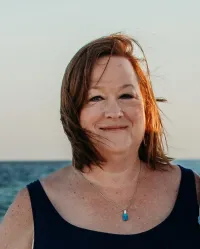Financial Insights & Expert Advice
Explore articles, tips, and strategies to help you make confident money decisions at every stage of life.


What Cancer Taught Me
On this first day of October, I want to take a moment to reflect. This summer, I quietly crossed a milestone: five years NED (no evidence of disease). Five years since active treatment. Five years. In some ways, it feels like a hundred years ago. In other ways, it feels like yesterday. Living through cancer changes the way you experience time, relationships, and even yourself. For what it’s worth, here’s what I’ve learned over the past five years:
You need to be your own advocate.
Doctors, treatments, options—it’s a lot to take in. You have to do your own research. And if you can’t, or if research isn’t your strength, you need a sidekick—a partner, family member, or friend who can help ask the hard questions and keep track of the details. Cancer treatment is not one size fits all, and there isn’t always a clear path. Ask the questions, get the second opinion (or third), and take the time needed to make the best decisions for YOU.
The people who love you are going through it too.
Your diagnosis isn’t just your diagnosis. Everyone who loves you is on this journey as well -and they have to find their own way to process it. Sometimes that means giving them space or it might mean letting them be strong for you. I know it is happening to you, but it is kicking the crap out of them too.
It’s okay to ask for help.
Man, this one was tough for me. I’ve always been independent. I’ve always been the one that other people count on. But I learned at some point, I have a limit. I finally reached the point that I couldn’t do it all. I also learned that people truly want to help, but often they just don’t know how. It’s ok to ask for help. It’s okay to be specific. “Can you drive me to this appointment?” or “Would you bring soup over on Wednesday?” makes it easier for them to show up and allows them to carry some of the weight for you.
If it isn’t serving you, cut it loose.
Maybe read this one twice. Life is too short for toxic people, unnecessary bullshit, or draining commitments. As I became acutely aware, none of us know how much time we have. Don’t want to go to lunch with friends? Don’t. Think spending an afternoon hiking is better for you than a work event? Do it. Have that one “friend” that only takes withdrawals, but never makes a deposit? It’s over. Cancer stripped away any tolerance I may have had for anything that didn’t give me strength, peace, or make my face hurt from laughing too hard.
Cancer survivors live with PTSD.
A cancer diagnosis is a life-threatening traumatic event. Many people think that once treatment is over, you’re better. Like magic. You made it through treatment so that’s it, right? Not even close. Even when treatment ends, the fear doesn’t. “Scanxiety” is real. Every follow-up appointment, every new ache, every test can send your mind spiraling. Your body feels older, maybe foreign. Random panic attacks. As the fight for our physical health winds down, we then have to focus on our mental health in order to truly recover.
Don’t judge yourself by the day.
Think of it like parenting a toddler. Some days, their “diet” is goldfish crackers and gummy bears. Other days, it’s broccoli and banana bread. You don’t measure nutrition by the day, you measure it by the week. Cancer treatment is the same.
Some days you won’t get out of bed. Other days, you’ll shower, put on makeup, laugh with people you love, and even check off a few to-do list items. Don’t beat yourself up for the bad days - just keep moving through them.
Nurses are saints.
Saints with dark humor, colorful language, and hearts bigger than you can imagine. Period.
Focus on what you can control.
Cancer takes away a lot of choices. I’m Gen X. If something isn’t going well, if things aren’t working out the way I want them to, I just take a deep breath and get to work. I couldn’t outwork my cancer. I couldn’t will it away. Cancer teaches you to let go of the stuff that doesn’t matter. It teaches you to pour your energy into what you can control - your outlook, your boundaries, and where you put your energy.
I didn’t know what grace meant before cancer.
Grace with myself. Grace with others. Grace in letting go of the need to do it all, be it all, handle it all. Grace is often defined as undeserved favor. In accepting that I could not control cancer, I stopped trying to keep myself under control. I stopped trying to manage other peoples needs and feelings and just let them be, exactly as they were. I learned to default to giving people the benefit of the doubt. Cancer gave me the language and the lived experience of what grace really is.
Looking Back, Moving Forward
Five years NED. It’s a weird milestone. It feels both monumental and ordinary, all at once. I’m unbelievably grateful to be reflecting on this experience, five years later. I know not everyone gets that privilege.
But I’m also mourning the loss of who I was before the diagnosis. I remember thinking, several weeks after my diagnosis, that I could do anything for a year. I would do all of the treatments; I would fight all of the fights. All I wanted from the deal was to make it through and feel like myself when I was done. That’s not what happens. This journey doesn’t lead you to anywhere that you have been before, and you lose the pre-cancer version of yourself.
I lost the me that took my health for granted – I’m grateful every day. The relationships that mattered are stronger, weather tested, and safe. I understand boundaries now. I appreciate the moments, the snapshots, the little things. I know the strength of the warrior inside me, and I know how to harness her power.
If you are walking this road right now, or standing beside someone who is, I hope these lessons remind you that you’re not alone. This road is hard, and messy, and vulnerable – and that’s ok. Because at the end of the day, it’s not just about surviving. It’s about embracing the new version of yourself, scars and all. It’s about carrying the weight of the loss and the enormity of the gratitude - and still moving forward.
Frequently Asked Questions
Clear answers to help you make confident decisions.
I'm barely keeping up with treatment. How can I handle divorce planning too?
That's exactly why you need strategic help, not more homework. My system is designed around your energy limitations and treatment schedule. We work when you can, and I handle the complex analysis when you can't.
Won't this just add more stress to my life?
Actually, the opposite. Uncertainty and financial fear create stress. Clarity and strategy reduce it. My clients sleep better knowing they understand their options and have a clear plan.
My situation seems straightforward. Do I really need professional help?
Cancer makes no situation straightforward. Medical expenses, insurance changes, treatment schedules, and potential income disruption complicate even "simple" divorces. One mistake in asset valuation can cost more than my entire fee.
Can't my oncologist's social worker help with this?
Medical social workers are incredible for patient advocacy and resources, but they're not financial experts or divorce specialists. You need someone who understands both the medical and financial complexities of your situation.

COMPANY
LEGAL
SOCIALS
Copyright 2026. MCP Consulting, LLC. All Rights Reserved.
